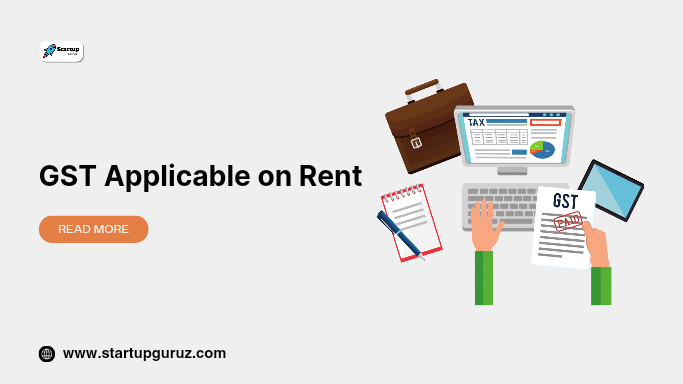GST Applicable on Rent
GST Applicable on Rent: Understanding the Tax Implications
In India, the Goods and Services Tax (GST) has simplified the taxation system. However, many individuals and businesses still have queries regarding its application on rent. This comprehensive guide aims to provide clarity on GST implications for rent payments, along with FAQs to address common concerns.
Introduction to GST on Rent
GST is a destination-based tax applicable on the supply of goods and services across India. When it comes to rent, GST applies to both residential and commercial properties, but the specifics differ based on various factors.

Understanding GST on Residential Rent
- Exemption for Residential Rent: Renting out residential properties for residential purposes is exempted from GST. Therefore, if you are a landlord renting out a house or apartment solely for residential purposes, GST does not apply to you.
- Rental Income Threshold: Individuals earning rental income below the threshold limit specified by the government are exempted from GST registration and payment. As of now, the threshold limit for GST registration is INR 20 lakhs (INR 10 lakhs for special category states).
- Joint Ownership: In cases where multiple owners jointly own a property and receive rent, GST applies to each owner individually if their share of rental income exceeds the threshold limit.
GST on Commercial Rent
- Applicability to Commercial Properties: GST is applicable to the renting of commercial properties such as offices, shops, warehouses, etc. Landlords leasing out commercial spaces are required to register under GST and charge GST on rent.
- GST Rate for Commercial Rent: The GST rate for commercial rent is 18%. Landlords are required to collect GST at this rate and remit it to the government.
Frequently Asked Questions (FAQs)
- Is GST Applicable to Rent for Residential Properties?
- No, GST is not applicable to rent for residential properties rented out for residential purposes.
- What is the Threshold for GST Registration on Rental Income?
- The threshold for GST registration on rental income is INR 20 lakhs (INR 10 lakhs for special category states).
- How is GST Calculated on Commercial Rent?
- GST on commercial rent is calculated at the rate of 18% on the total rent amount.
- Is GST Applicable if Rent is Collected in Advance?
- Yes, GST is applicable on rent collected in advance. It should be reported in the GST returns for the period in which it is received.
- Are There Any Exemptions for GST on Rent?
- Yes, residential rent and rent collected by landlords earning below the threshold limit are exempt from GST.
- Do I Need to Issue a GST Invoice for Rent Collected?
- Yes, landlords renting out commercial properties are required to issue a GST invoice to tenants and collect GST on rent.
- Can I Claim Input Tax Credit (ITC) on GST Paid on Commercial Rent?
- Yes, businesses renting commercial properties can claim input tax credit on GST paid on rent if they are registered under GST themselves.
- What Happens if I Fail to Register for GST on Rental Income?
- Failure to register for GST on rental income, if applicable, can attract penalties and legal consequences as per GST laws.
- Is GST Applicable to Rent Received from Foreign Tenants?
- Yes, GST is applicable to rent received from foreign tenants for properties situated in India, subject to the relevant provisions.
- How Should I Report Rental Income in GST Returns?
- Rental income should be reported under the appropriate head in the GST returns filed by landlords based on the nature of the property rented.
Conclusion
Understanding the GST implications on rent is crucial for landlords and tenants alike. By adhering to the GST regulations applicable to rental income, individuals and businesses can ensure compliance and avoid any legal complications. If you have further queries or require assistance regarding GST on rent, it is advisable to consult with a tax expert or legal advisor for personalized guidance.